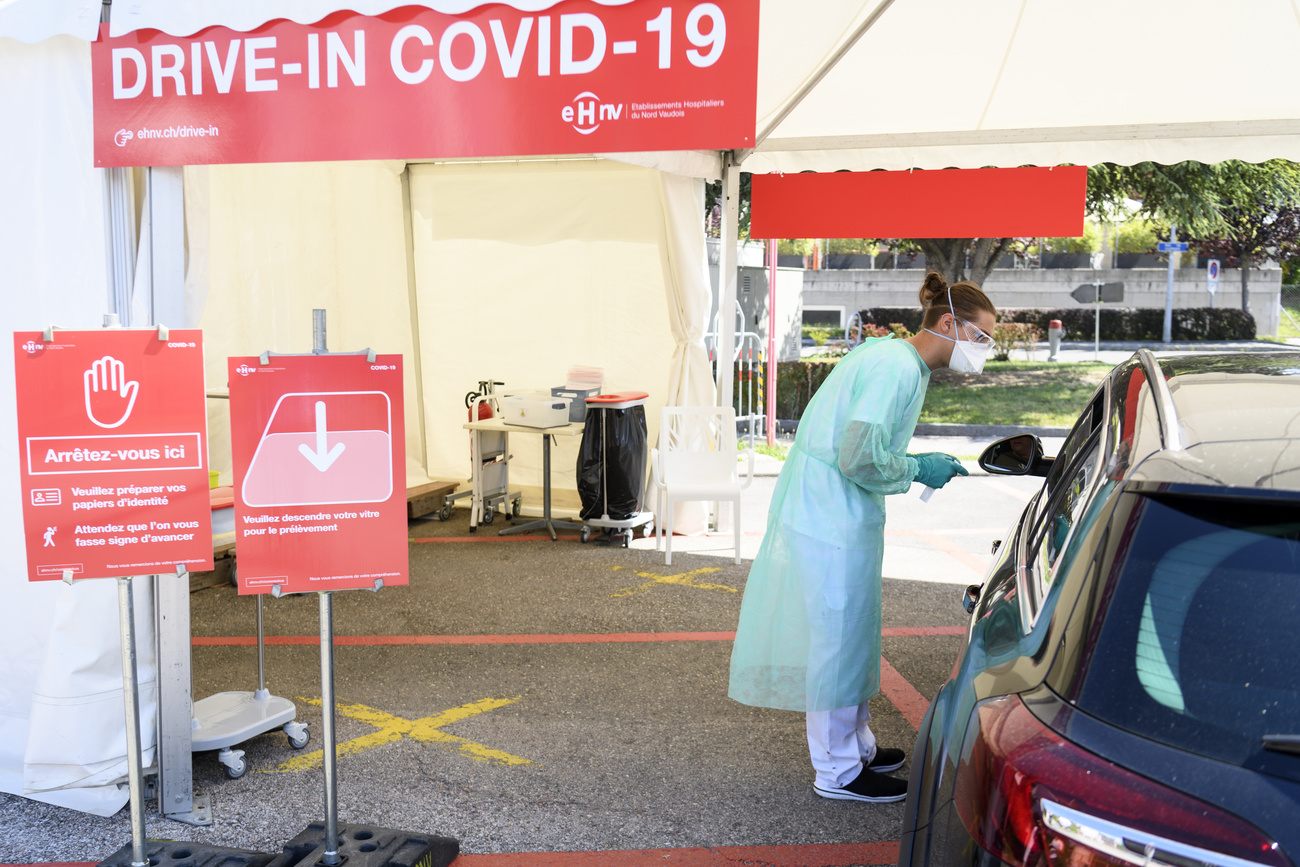
Switzerland lags behind in Covid-19 testing

The Alpine nation is testing for coronavirus less than its European neighbours or the US, says a report by the Swiss public broadcaster.
During the summer, an average of 5.3 people out of 1,000 were given the smear test every week, according to an analysis by RTS published today. In neigbouring France and Germany, the figure was closer to 8 and as high as 17.6 in the US.
When questioned by RTS, the Federal Office of Public Health (FOPH) responded that a lack of capacity was not the problem. According to the FOPH, the maximum testing capacity fluctuates between 20,000 and 25,000 samples per day compared to the 16,000 to 17,000 tests currently being carried out. However, the FOPH says it is working “to ensure an even greater volume”.
Other factors behind the numbers are that testing in in Switzerland is done in traditional medical structures like hospitals and clinics and almost exclusively on people showing symptoms of the virus. According to the FOPH, the responsibility for deciding who gets tested lies with the cantons. To improve access, the federal authorities recommend expanding the pool of testing options such as drive-in centres.

In compliance with the JTI standards
More: SWI swissinfo.ch certified by the Journalism Trust Initiative






























You can find an overview of ongoing debates with our journalists here . Please join us!
If you want to start a conversation about a topic raised in this article or want to report factual errors, email us at english@swissinfo.ch.